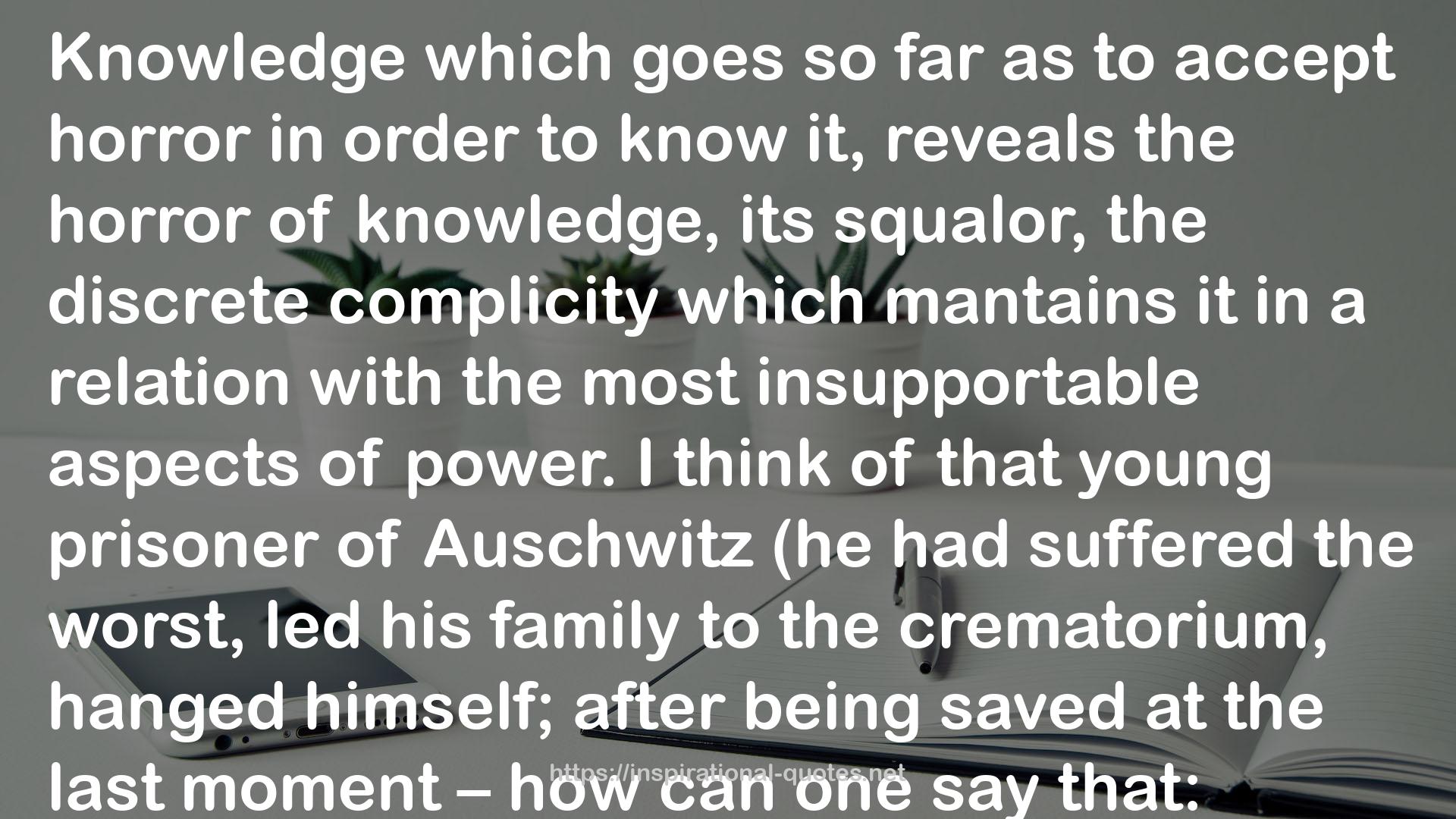" Knowledge which goes so far as to accept horror in order to know it, reveals the horror of knowledge, its squalor, the discrete complicity which mantains it in a relation with the most insupportable aspects of power. I think of that young prisoner of Auschwitz (he had suffered the worst, led his family to the crematorium, hanged himself; after being saved at the last moment – how can one say that: saved? – he was exempted from contact with dead bodies, but when the SS shot someone, he was obliged to hold the victim’s head so that the bullet could be more easily lodged in the neck). When asked how he could bear this, he is supposed to have answered that he “observed the comportment of men before death.” I will not believe it. As Lewental, whose notes were found buried near a crematorium, wrote to us, “The truth was always more atrocious, more tragic than what will be said about it.” Saved at the last minute, the young man of whom I speak was forced to live that last instant again and each time to live it once more, frustrated every time of his own death and made to exchange it every time for the death of all. His response (“I observed the comportment of men…”) was not a response; he could not respond. What remains for us to recognize in this account is that when he was faced with an impossible question, he could find no other alibi than the search for knowledge, the so-called dignity of knowledge: that ultimate propriety which we believe will be accorded us by knowledge. And how, in fact, can one accept not to know? We read books on Auschwitz. The wish of all, in the camps, the last wish: know what happened, do not forget, and at the same time never will you know. "
― Maurice Blanchot , The Writing of the Disaster
